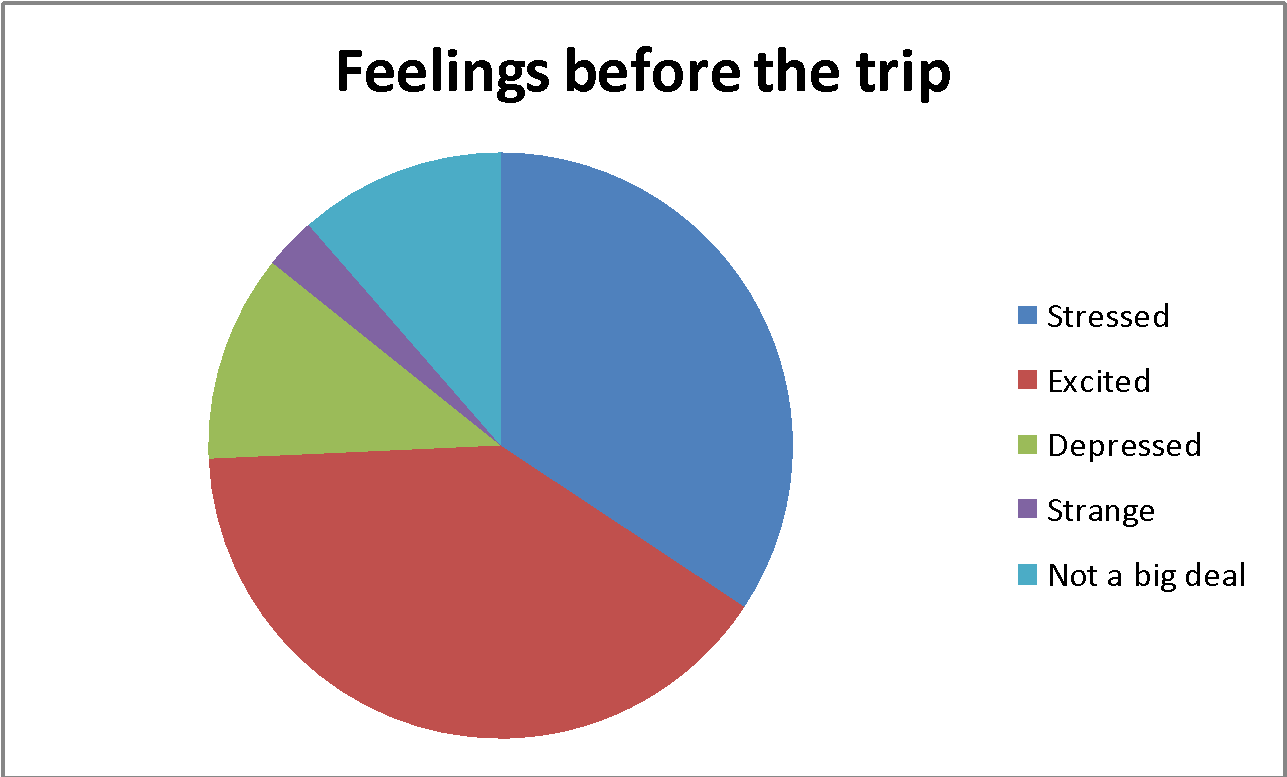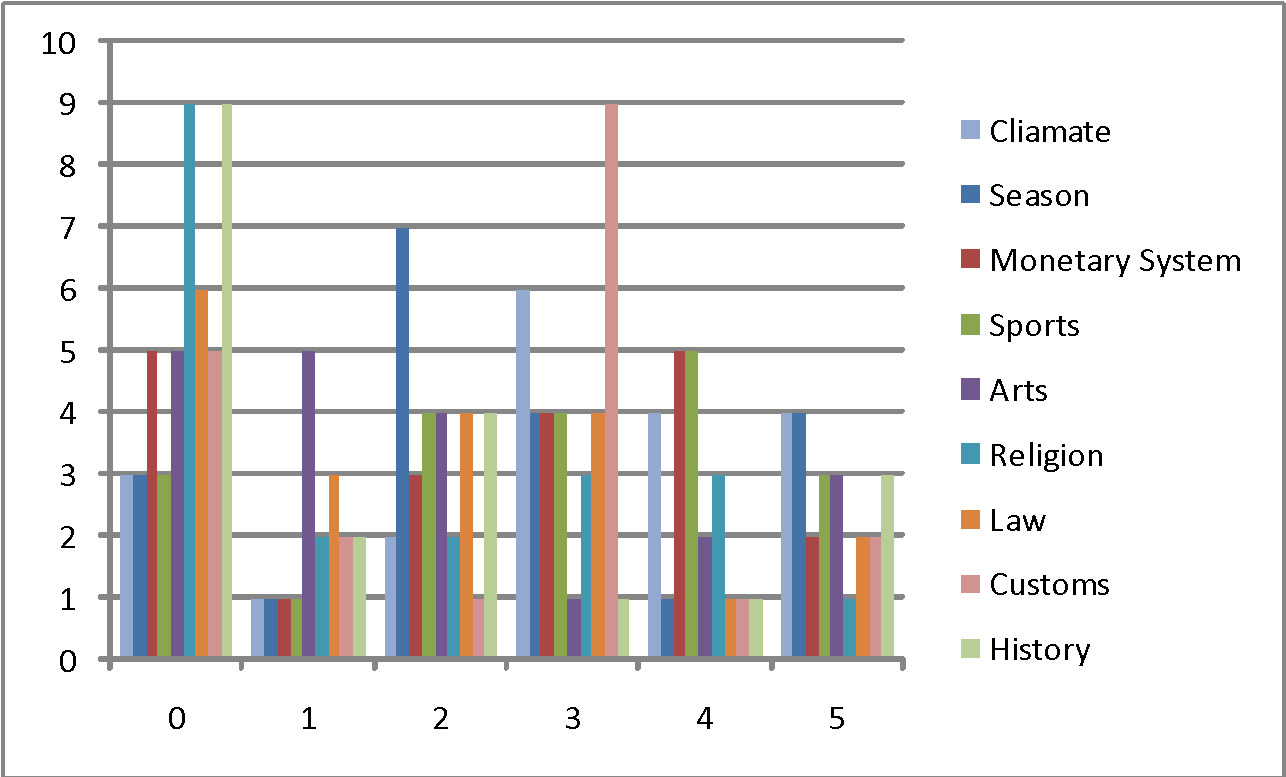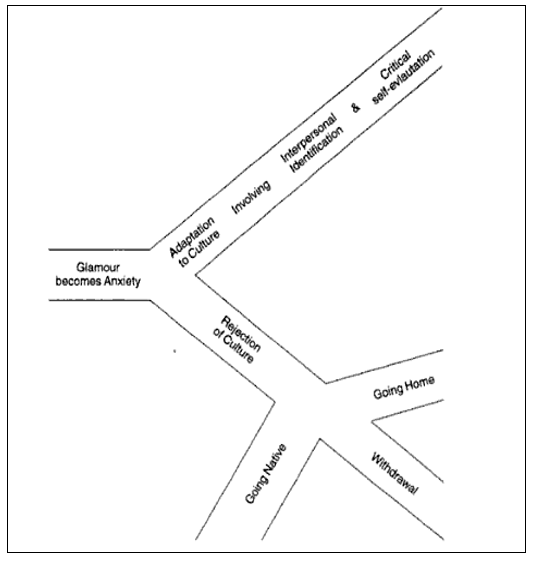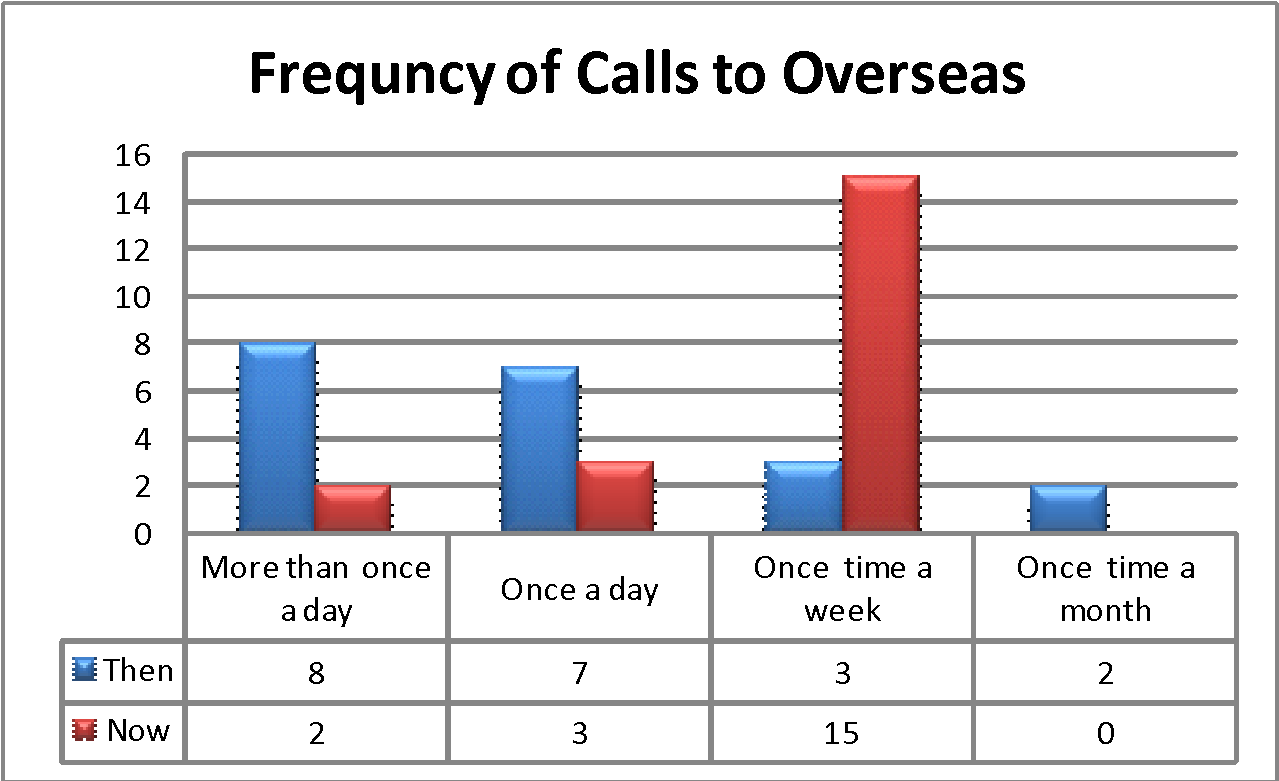Abstract
The discussion of the concept of culture shock (Oberg, 1970) experienced by most travelers is the main aim of the current report. When people go abroad they are likely to feel excitement which is changed by aggressive behavior. As a rule, the four stages of culture shock are applied to those people that come to live in the different country which has a specific culture. Honeymoon, crisis, recovery, and adjustment are the four stages usually experienced by travelers.
Introduction: Exploration of Culture Shock
People that travel abroad
The current report is based on secondary sources that focus on the problem of culture shock and people experiencing it. Business people, travelers, tourists, educators, and students are the most common categories of people that often travel abroad.
A monoculture mode of thinking and living can damage greatly the adjustment in the alien environment. First of all, people should not accept another culture as completely different and hostile. Australia has a lot of cultural concepts that can be treated as alien by representatives of some other cultures. For example kangaroos can be considered an integral part of the Australian culture, though not all people are aware of this fact. However, not all people are aware of a cow being a sacred animal in India and the cat as that of Egypt. Thus, the culture, history, and customs of Australian people can be learned from the book by Clancy (2004).
Aim of the report
As the main purpose of the current report is to analyze the reasons for experiencing culture shock by students that come to Australia and possible ways to overcome certain difficulties.
Methodology: surveys about students and supplementary materials
The data were obtained with the help of secondary sources. Though the survey can be considered the primary and more appropriate source, the current report is substantially based on secondary sources including books, journal and magazine articles that focus on the discussion of the concept of culture shock.
Culture shock as an obstacle to communication and adjustment
When people face difficulties, they try to find ways to solve these problems, though when people are not aware of the reasons and essence of the encountered difficulties, they may fail to indicate the most appropriate ways to overcome those. Consequently, people should know about the concept of culture shock, its stages, and ways to overcome it.
Results of the Research
Oberg’s phases of culture shock
The first who had shaped the concept and emphasized the importance of issues within the difficulties experienced by people abroad was Dr. Kalvero Oberg. Everything alien is treated differently by different people even within the same culture because of certain cues “of which we are not consciously aware” (Oberg, 1970, p. 46). When people find themselves in a strange environment they may experience various feelings including excitement or discomfort.

As it can be seen in Graph.1, students expressed their feeling before they travel to Australia. As it is apparent in the pie chart, most of them felt stressed or excited about this experience. The level of adjustment depends on the cultural level of a person. When a traveler is aware of certain cultural concepts of the alien country which may differ greatly from those of the native one, he/she is sure not to experience at all or feel less discomfort than people that are not aware of certain differences between the cultures.

This can be seen in Graph 2 that the knowledge of people about different aspects of Australian culture is shown as it can be seen History and Religion are most unknown features of Australian culture. And seasons and climate are the most known ones.
As suggested by Oberg, there are four stages of culture shock experienced by most travelers. Each of these stages has its reasons and symptoms. As a rule, people may be unaware of the ‘disease’ they have and refuse the environment they would probably accept if being able to cope with cultural problems. When a person is aware of the reasons for certain problems, he/she may be capable of coping with those. However, some people appear to be monoculture ones which means that they would not accept any other customs, traditions, language, and other expressions of culture than those of the native one.
Honeymoon
The first stage is called the ‘honeymoon’ stage which presupposes that excitement and happiness are the feelings experienced by travelers when they first come to a certain country with a culture that differs from the native one. These feelings are compared to those experienced by the new-weds when they have a honeymoon. As the name of this stage is understandable, it is necessary to find out whether it is good or bad to experience the honeymoon stage. As a rule, people are not aware of the culture shock they face because everything seems to be so inviting and amazing that people fail to recognize the ‘disease’ in the first stage.
Crisis
The second stage is called this because it really resembles the crisis when everything seems difficult and unbearable to the extent that a person wants to give up everything and leave this country and return to the native one. This happens because people are afraid to forget something typical of their original culture and, consequently, are likely to reject everything new and alien. When people come to the understanding of the alien culture, its positive features, benefits, and peculiarities, the third stage comes.
Recovery
The third stage presupposes a smooth passage from the refusing of the alien culture to its full adoption. When people get accustomed to the traditions of the alien culture, they can easily differentiate between the alien and native one. When a person completely understands the necessity of acting as a representative of the alien culture, the last stage can be accepted.
Adjustment
The fourth and the last stage include the complete adoption of all customs, traditions, and other cultural concepts of the alien culture. When people are aware of the difficulties and benefits of the alien culture, it does not seem to be unacceptable to adopt some new customs anymore. As suggested by Cornes (2004), the inner world of the person should be developed in order to bring recognition of the alien culture. All changes should be done in the character, behavior, and attitude of a traveler. The scheme of operation of all stages can be observed in Figure 1 (Rheenen, 1996, p. 93).

Discussion
- Criticism of Oberg’s theory. As the theory of Dr. Kalvero Oberg was widely discussed by psychologists and other experts, it was not commonly criticized. All the remarks resembled rather alternative versions of the theory than its total refutation.
- Ward, Furnham & Bochner. Affect, behavior and cognition became the fundamental issues of the culture shock dwelled on by Ward, Furnham & Bochner (2001). These three researchers have established a theory of culture shock which described the way “people feel, behave, think, and perceive when exposed to second-culture influences” (Ward, Furnham & Bochner, 2001, p. 270). Consequently, these authors claim that Oberg’s theory cannot be considered a universal one and that not all people experience culture shock according to the four-stage model. As a rule, people differ as well as their knowledge about the world which means that culture shock is not supposed to be the universal concept to describe the feelings experienced by travelers.
- Hofstede. Differences in the common cultural concepts, suchlike general behavior, language, gestures, and other cues play a crucial role in the behavior of people that are forced to travel a lot. Thereby, Hofstede (2001) has presented a behavioral model of cultural differences which cause culture shock. The five-dimensions approach can be considered a culture-shock theory where power distance, uncertainty avoidance, individualism, masculinity and femininity, and long-term and short-term orientation are considered the universal issues existing in every country.
- Seven steps from Donald Smith’s theory. Smith (2008) presented seven steps to overcome the traveling anxiety where the author suggested reanalyzing the world and the attitude towards everything around. Relaxation, visualization, location, maintaining a link, and appraising oneself are the seven steps that are aimed at facilitating traveling.
Conclusion
Summary of the research
The most common mistake while analyzing a certain concept is unification. Thus, the four steps of the culture shock are too specific to be applicable to all people. When a person encounters difficulties, it is necessary to cope with them, though it cannot be done until the problem is indicated. Consequently, when the problem is identified, it can be successfully solved. Modern theories on culture shock are more general and can be applied to most people. Though there are a lot of exceptions in the world and cultures, it is necessary to follow some advice in order to overcome the traveling anxiety and other problems encountered while traveling.
Recommendations
The culture shock can be discussed considering differences between particular cultures. For example, certain cues of the Western culture – namely, facial expressions and body language – can be opposed to those of the Eastern one. As different cultures can be opposed to each other, it is necessary to establish criteria that would be applied to particular cues in different cultures. Most of the students lack contact with their families after a period of stability in Australia. It can be seen in Graph 3.

Students should be aware of some possible risks and difficulties encountered while traveling and getting acquainted with an alien culture. It is necessary to learn more information about the country you are going to in terms of its customs and traditions. Moreover, some legal issues should be considered with regard to avoiding problems concerning violation of laws. Thus, the students should plan their trip in advance in order to feel relaxed and confident. The basic information should be searched, while residents can help with some additional issues about their country, culture, traditions, and other cues that may vary from one culture to another.
Reference List
Rheenen, G. V., 1996. Missions: biblical foundations & contemporary strategies. Grand Rapids, Michigan: Zondervan.
Clancy, L., 2004. Culture and customs of Australia. Westport, CT: Greenwood Publishing Group.
Cornes, A., 2004. Culture from the inside out: travel and meet yourself. Yarmouth, Maine: Intercultural Press.
Smith, D. C., 2008. Pulling the plug on culture shock: a seven-step plan for managing travel anxiety. Journal of Global Business Issues, 2 (1), pp. 41-44.
Oberg, K., 1970. Culture shock and the problem of adjustment to new cultural environments. In: Wight, A. R., Hammons, M. A. & Wight, W. L. Guidelines for peace corps cross-cultural training. Part III. Supplementary readings. Centre for Research and Education, Estes Park, Colo. pp. 46-54.
Ward, C. A., Bochner, S. & Furnham, A., 2001. The psychology of culture shock. 2nd ed. Hove, East Sussex: Routledge.
Hofstede, G., 2001. Culture’s consequences: comparing values, behaviors, institutions, and organizations across nations. 2nd ed. Thousand Oaks, California: SAGE.